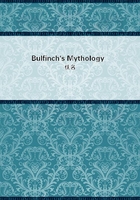
第74章
Amphiaraus, the brother-in-law of Adrastus, opposed the enterprise, for he was a soothsayer, and knew by his art that no one of the leaders except Adrastus would live to return. But Amphiaraus, on his marriage to Eriphyle, the king's sister, had agreed that whenever he and Adrastus should differ in opinion, the decision should be left to Eriphyle. Polynices, knowing this, gave Eriphyle the collar of Harmonia, and thereby gained her to his interest. This collar or necklace was a present which Vulcan had given to Harmonia on her marriage with Cadmus, and Polynices had taken it with him on his flight from Thebes.
Eriphyle could not resist so tempting a bribe, and by her decision the war was resolved on, and Amphiaraus went to his certain fate. He bore his part bravely in the contest, but could not avert his destiny. Pursued by the enemy he fled along the river, when a thunderbolt launched by Jupiter opened the ground, and he, his chariot, and his charioteer, were swallowed up.
It would not be in place here to detail all the acts of heroism or atrocity which marked the contest; but we must not omit to record the fidelity of Evadne as an offset to the weakness of Eriphyle. Capaneus, the husband of Evadne, in the ardor of the fight, declared that he would force his way into the city in spite of Jove himself. Placing a ladder against the wall, he mounted, but Jupiter, offended at his impious language, struck him with a thunderbolt. When his obsequies were celebrated, Evadne cast herself on his funeral pile and perished.
Early in the contest Eteocles consulted the soothsayer Tiresias as to the issue. Tiresias, in his youth, had by chance seen Minerva bathing. The goddess in her wrath deprived him of his sight, but afterwards relenting gave him in compensation the knowledge of future events. When consulted by Eteocles, he declared that victory should fall to Thebes if Menoeceus, the son of Creon, gave himself a voluntary victim. The heroic youth, learning the response, threw away his life in the first encounter.
The siege continued long, with various success. At length both hosts agreed that the brothers should decide their quarrel by single combat. They fought and fell by each other's hands. The armies then renewed the fight, and at last the invaders were forced to yield, and fled, leaving their dead unburied. Creon, the uncle of the fallen princes, now become king, caused Eteocles to be buried with distinguished honor, but suffered the body of Polynices to lie where it fell, forbidding every one, on pain of death, to give it burial.
Antigone, the sister of Polynices, heard with indignation the revolting edict which consigned her brother's body to the dogs and vultures, depriving it of those rites which were considered essential to the repose of the dead. Unmoved by the dissuading counsel of an affectionate but timid sister, and unable to procure assistance, she determined to brave the hazard and to bury the body with her own hands. She was detected in the act, and Creon gave orders that she should be buried alive, as having deliberately set at nought the solemn edict of the city. Her love, Haemon, the son of Creon, unable to avert her fate, would not survive her, and fell by his own hand.
Antigone forms the subject of two fine tragedies of the Grecian poet Sophocles. Mrs. Jameson, in her Characteristics of Women, has compared her character with that of Cordelia, in Shakespeare's King Lear. The perusal of her remarks cannot fail to gratify our readers.
The following is the lamentation of Antigone over OEdipus, when death has at last relieved him from his sufferings:
"Alas! I only wished I might have died With my poor father; wherefore should I ask For longer life?
Oh, I was fond of misery with him;
E'en what was most unlovely grew beloved When he was with me. Oh, my dearest father, Beneath the earth now in deep darkness hid, Worn as thou wert with age, to me thou still Wast dear, and shalt be ever."Francklin's Sophocles PENELOPE
Penelope is another of those mythic heroines whose beauties were rather those of character and conduct than of person. She was the daughter of Icarius, a Spartan prince. Ulysses, king of Ithaca, sought her in marriage, and won her over all competitors.
When the moment came for the bride to leave her father's house, Icarius, unable to bear the thoughts of parting with his daughter, tried to persuade her to remain with him, and not accompany her husband to Ithaca. Ulysses gave Penelope her choice, to stay or go with him. Penelope made no reply, but dropped her veil over her face. Icarius urged her no further, but when she was gone erected a statue to Modesty on the spot where they parted.
Ulysses and Penelope had not enjoyed their union more than a year when it was interrupted by the events which called Ulysses to the Trojan war. During his long absence, and when it was doubtful whether he still lived, and highly improbable that he would ever return, Penelope was importuned by numerous suitors, from whom there seemed no refuge but in choosing one of them for her husband. Penelope, however, employed every art to gain time, still hopping for Ulysses' return. One of her arts of delay was engaging in the preparation of a robe for the funeral canopy of Laertes, her husband's father. She pledged herself to make her choice among the suitors when the robe was finished. During the day she worked at the robe, but in the night she undid the work of the day. This is the famous Penelope's web, which is used as a proverbial expression for anything which is perpetually doing but never done. The rest of Penelope's history will be told when we give an account of her husband's adventures.